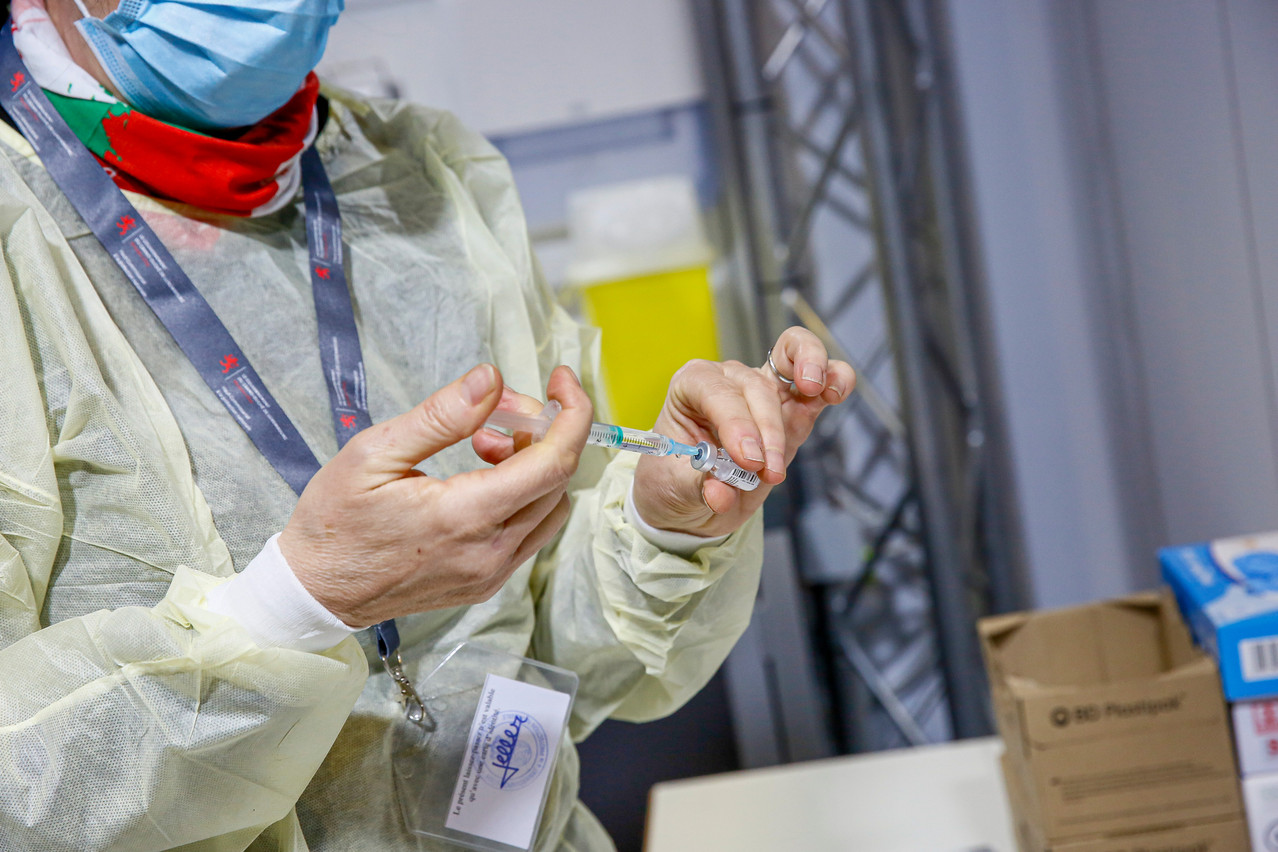Prime minister Xavier Bettel (DP) on 7 January had charged a team of doctors and scientists to whether the country should introduce a vaccine mandate, ahead of a debate in parliament scheduled for 19 January.
“What was extremely important from the start is that we look at the data and consider as much data as possible to reach a clear and objective opinion,” said Paul Wilmes, a professor the Luxembourg Centre of Systems Biomedicine.
There is a strong link between the age of patients and the severity of illness from Sars-CoV-2, the report by the experts said, advocating mandatory vaccination for those over 50. “The risk of hospitalisation, in normal care and intensive care, and death from covid-19 gradually increases from the age of 50.”
More than 80% of intensive care patients are aged 50 or over, data shows, while more than 98% of the 931 people who had died as of 12 January were among that age bracket.
Around 30,000 people aged 50 or over in Luxembourg remain unvaccinated while 40,000 have yet to receive a booster dose, which the doctors consider part of the mandate.
Vic Arendt, a doctor and infectious diseases specialist at the CHL hospital said that people below 50 should not think that they don’t need the vaccine. The goal should be a 90% vaccination target among those who aren’t included in the vaccine mandate recommendation, he said.
The experts also said that healthcare workers--in hospitals but also nursing homes and doctor’s offices--should have to get vaccinated. This mandate would also extend to suppliers or contract workers in contact with patients or residents or providing at-home care services.
“No difference is being made between residents and cross-border workers,” said Gérard Schockmel, a doctor and infectious diseases specialist at Robert Schuman Hospitals, about the vaccine mandate in the healthcare sector. Around one quarter of doctors and two thirds of nurses in the healthcare sector live outside Luxembourg.
Pandemic to continue another two years
The European Court of Human Rights in an April 2021 verdict had ruled that a vaccine mandate is an acceptable measure if there is scientific evidence to support it and if it pursues clear objectives.
The vaccine mandate for over-50s and healthcare staff will help protect the healthcare sector, the experts said, as well as protecting those who are most vulnerable.
“We assume that the virus will continue circulating for two years,” Schockmel said, adding that the vaccine mandate should begin as soon as possible and last until June 2024, although this advice could change depending on how the pandemic develops until then. “We don’t know what will come after omicron,” he said.
He also refused comparisons between the coronavirus and a regular flu, saying that since the Spanish flu there had not been a wave of illness across the globe similar to that caused by the coronavirus.
The experts said the effectiveness of the vaccine is very high, also urging for data to be analysed more closely. While it might look like similar amounts of people with or without vaccines are in hospital, these stats are jarred, they said, as they fail to take into account the total vaccinated and unvaccinated populations.
During a on 7 January doctors explained that vaccinated people who are hospitalised are usually older, immunocompromised or suffer from other illnesses and risk factors. Unvaccinated patients in the ICU are 10 to 15 years younger than those who are vaccinated, said Christophe Werer, a doctor at the CHL, while those vaccinated have usually not received their booster jab.
He also said that other factors jar the numbers. For example, patients admitted to the ICU for other reasons, such as an accident, but tested positive for the coronavirus upon admission are then considered covid-19 patients.
“The idea is--I’m thinking of children, young people, companies, of all of us--that life becomes as normal as possible again,” said Schockmel. “All of our life together is based on rules,” he said, likening the vaccine mandate to wearing a seatbelt. While no one can force you to put it on, there will be some form of punishment if you don’t.
The groups of experts did not go into questions such as fines for people who violate the mandate. This will be debated by members of parliament as submitted by the prime minister to the Chamber of Deputies to help shape the discussion on 19 January.
The full scientific opinion is .
